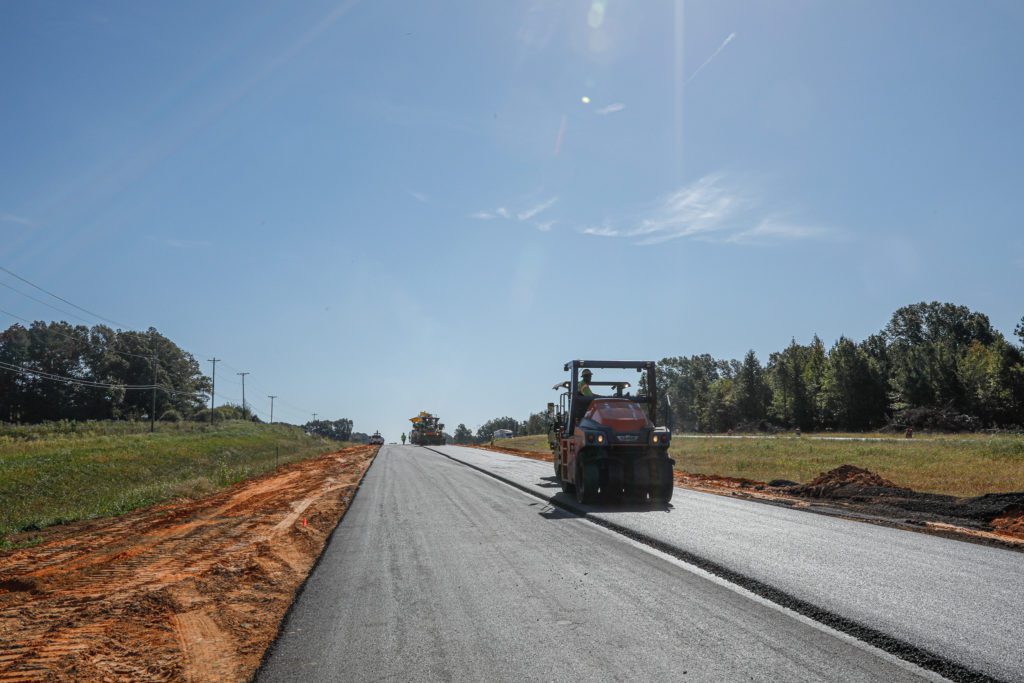Lehman-Roberts Co., now in its fourth generation of ownership, continues to build upon a long tradition of quality, trust and strong managerial leadership that sets it apart from competitors in the highway construction industry.
SITUATION
With an influx of industry that stimulated a need for more capacity, the Mississippi Department of Transportation was in need of a four-lane divided highway that had remained uncompleted for nearly 15 years. This project would connect the existing four-lane Hwy 302 in Marshall County, Mississippi, to the existing four-lane section in Fayette County, Tennessee.
SPECIFICATIONS
This project was bid in February 2016 and constructed in compliance with Mississippi Department of Transportation (MDOT) specifications. It included a 3.9-mile stretch of roadway that involved paving asphalt for 38.10 mm surface lift thickness and a 3.66 m lane width. Additionally, the project required 11 different types of asphalt mix designs with various thicknesses. The anticipated completion date was the end of 2017 or early 2018.
CHALLENGES
With the exception of the railroad overpass, the project was designed in the 1980s (in metric) and intended to be constructed in the late 1990s. However, due to funding and infrastructure issues, the project was put off. Nearly 35 years later, changes were made to the original plan and construction was reassigned. In order for the project to reach completion, the developer and Marshall County had to make arrangements for additional work to accommodate a future railroad line for the Industrial Park. The work on the west end required field adjustment due to the MDOT design date of the project happening before TDOT had four-laned the Tennessee section. This was not taken into consideration when MDOT reissued plans for construction. In addition, the plans were designed when there was a push for the United States to convert to the Metric System, and MDOT did not redesign the archived plans.
Utilization of locations that already existed in the infrastructure created a challenge that stemmed from elevation and alignment when tying an old, existing structure into a new structure to provide a smooth ride and transition. Lehman-Roberts convinced MDOT that the typical section for the existing roadway would require additional cold milling and asphalt leveling on the east end of the project to create a smooth transition into an existing MDOT roadway. The west end required additional grade transitions to accommodate the realignment of roadway crown lines from one project to the other. Another challenge was presented from the impact of weather on the scheduling of the work, with the completion date being pushed back many months.
STRATEGY
Lehman-Roberts Co. and Dement Construction Company worked together on this project. As a subcontractor, Lehman-Roberts had to present methods and solutions to continue progress with quality and positive results to complete work in a profitable fashion. This included staying in close contact with the prime contractor personnel and foreseeing what they needed before requested. Lehman-Roberts Co. performed the paving phase to ensure project completion by the estimated date.
SOLUTION
Lehman-Roberts Co. completed paving in November 2018. The roadway is now a four-lane divided highway with a new overpass, with plans to make this overpass a future railway and an interchange to the Industrial Park. At completion of the asphalt paving, the smoothness (PRI) results were positive and resulted in a substantial ride incentive bonus.

